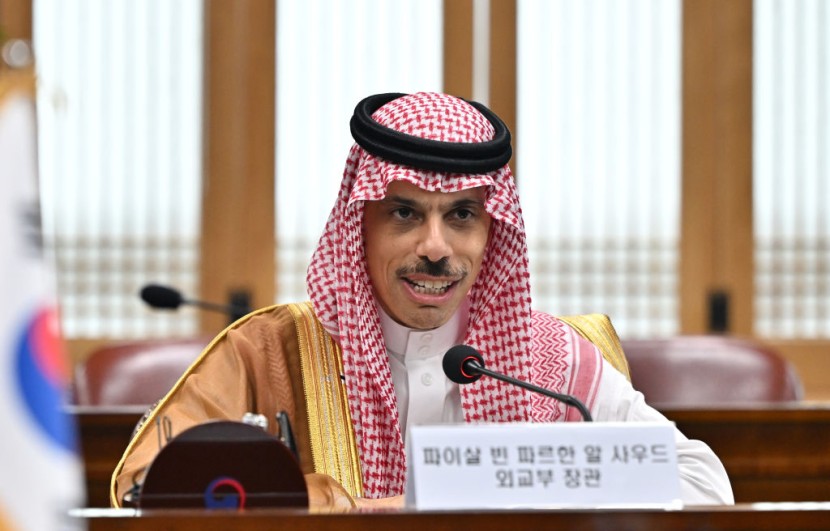
Attendance of the Saudi FM at the Munich Security Conference (MSC) remarked on how it keeps ties with Russia and its concerns over the Iran nuclear deal. Issues relevant were tackled at the Munich Security Conference and stressed that keeping communication open is crucial to the Kingdom's Minister of Foreign Affairs. The official took part in the panels discussing concerns.
Saudi FM Engages in Dialogue with Other States
He added that KSA and Washington are at odds due to a conflict of national interests but stressed that they are corroborating to secure and stabilize the region with partners.
Prince Faisal bin Farhan, Saudi Arabia's Foreign Minister, said that the Gulf Cooperation Council (GCC) stressed that mediation is needed to resolve the conflict in Ukraine. Remarked the KSA is in the middle of reaching a way to bring them to the table, reported Al Arabiya.
Iran Nuclear Deal's Impact on the Middle East
He stated that it was important to have it in effect, although it should involve concerned parties. Warned that nuclear arms start a race in the region, noted English Awsat.
The prince said the KSA prefers no proliferation of nukes, concerned over the conduct of the nuclear deal, Prince Faisal stressed that it must have the consensus of all Gulf nations.
Prince Faisal spoke at the Munich Security Forum last Saturday and indicated the Syrian civil war has to change. Wherein the GCC and Arab nations had supported anti-Syria fighters against Bashar al-Assad, says it must cease citing Pipa News.
One way is to reach the desired outcome for a favorable political resolution that will help to solve the problem of Syrian Refugees. Other Arab states suffer, especially after the quake that hit Damascus and Turkey.
The press wanted to confirm that going to Damascus is scheduled to see Emirati and Jordanian officials is up next, negotiating with the Assad regime to look for a way to reach important goals that include dealing with the humanitarian aspect. This would be the return of refugees to their homes.
Sadly, Assad did not get enough aid from Western nations despite the national tragedy. Support flooded from fellow Arabs, especially from the UAE, interested in minimizing Tehran's involvement with Assad. But other Gulf states are wary of breaching US sanctions that kill those trapped in the rubble.
Soon after the quake struck Syria, Riyadh immediately offered assistance to rescue civilians affected by it. Earlier the Kingdom sent help to the northwest sector of Syria, and the opposition controls that.
The Kuwaiti Sheikh Salem al-Sabah explained that no changes yet dealing with the Assad regime. He added Assad got control of Syria with help from external forces like Russia, Iran, and Hezbollah. It hinders giving direct aid as a result.
The Kuwaiti foreign minister attending the conference announced that they were providing aid to stricken Syria. Done via international bodies and Ankara to skirt sanctions imposed by the US, per Reuters.
Saudi FM Prince Faisal bin Farhan raised concerns over its good ties with Russia and the Iran nuclear deal that weighed on the GCC. The Munich Security Conference allowed the KSA to clarify its foreign policy, which now clashes with Washington.
Related Article : Chinese Diplomat Talks To Leaders at Munich Security Conference
© 2026 HNGN, All rights reserved. Do not reproduce without permission.








